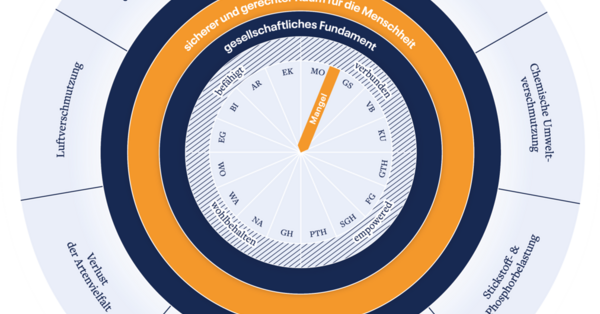For this method, factsheets were developed that show the municipal problem areas, solution strategies and fields of action in the areas of agriculture & food, economic development and housing & construction. All three factsheets start with the basics of donut economics, which can be summarised in seven principles for new economic thinking, and a methodological explanation of the impact matrix. In a subsequent problem analysis of the topic, the municipal challenges in the respective area are described. In order to visualise possible solution strategies, a four-field table is used, which, according to the donut economy, includes the social and the ecological dimension on a local and global level. The impact matrix is used here to visualise which of the solution strategies could have the most immediate and strongest impact for the community. The factsheets end with the presentation of already existing municipal initiatives that meet the donut criteria and serve as inspiration for other municipalities to implement a sustainable transformation.
- The relevance of the donut to agriculture and food is demonstrated by the high contribution of global agriculture to greenhouse gas emissions and changing diets that favour certain disease patterns. Food councils and community land use are proposed as solutions to these problems at the community level. Food councils can ensure that local food systems are created that promote healthy eating and regional value creation and agriculture.
- The Housing and Construction donut draws attention to the challenge of urbanisation, which involves a lack of housing, high prices and the geographical expansion of cities. Therefore, the factsheet for the municipal area proposes zero-emission settlements and innovative housing concepts to address these challenges.
- The donut for the economic development sector highlights the dependence on global supply chains for the provision of essential goods. In order to restore resilient supply to its citizens, the municipality can implement "Economic Development 4.0", which supports regional and sustainable businesses. Resource centres bring together a wide range of initiatives.


Brian Dowling
Hacienda Heights, California, United States of America
Interest in applying Systems Thinking and Complex Adaptive Systems through heterodox economics.